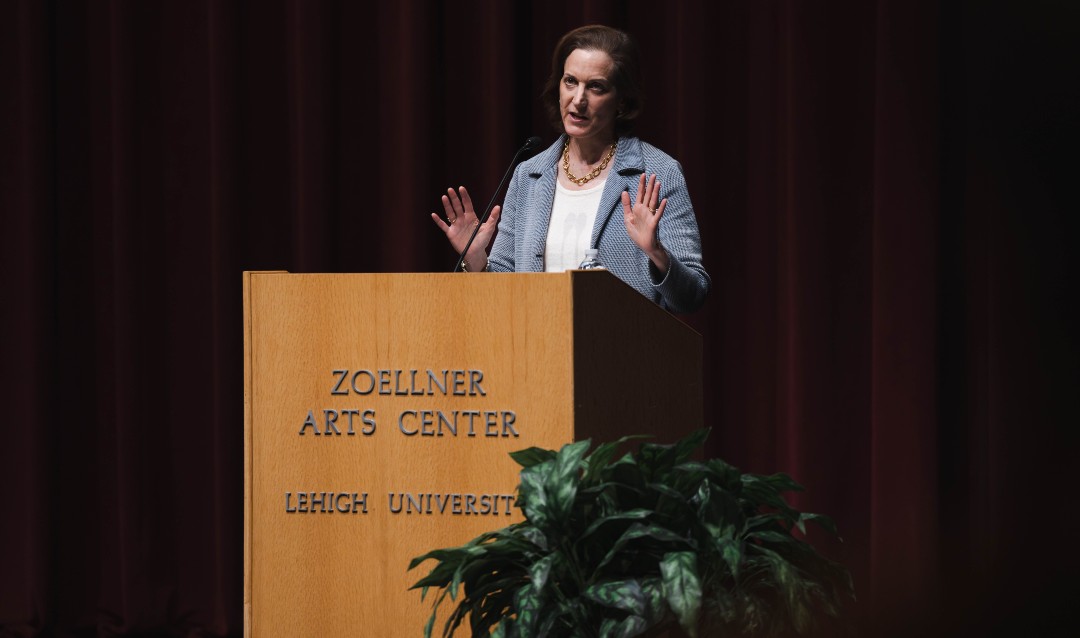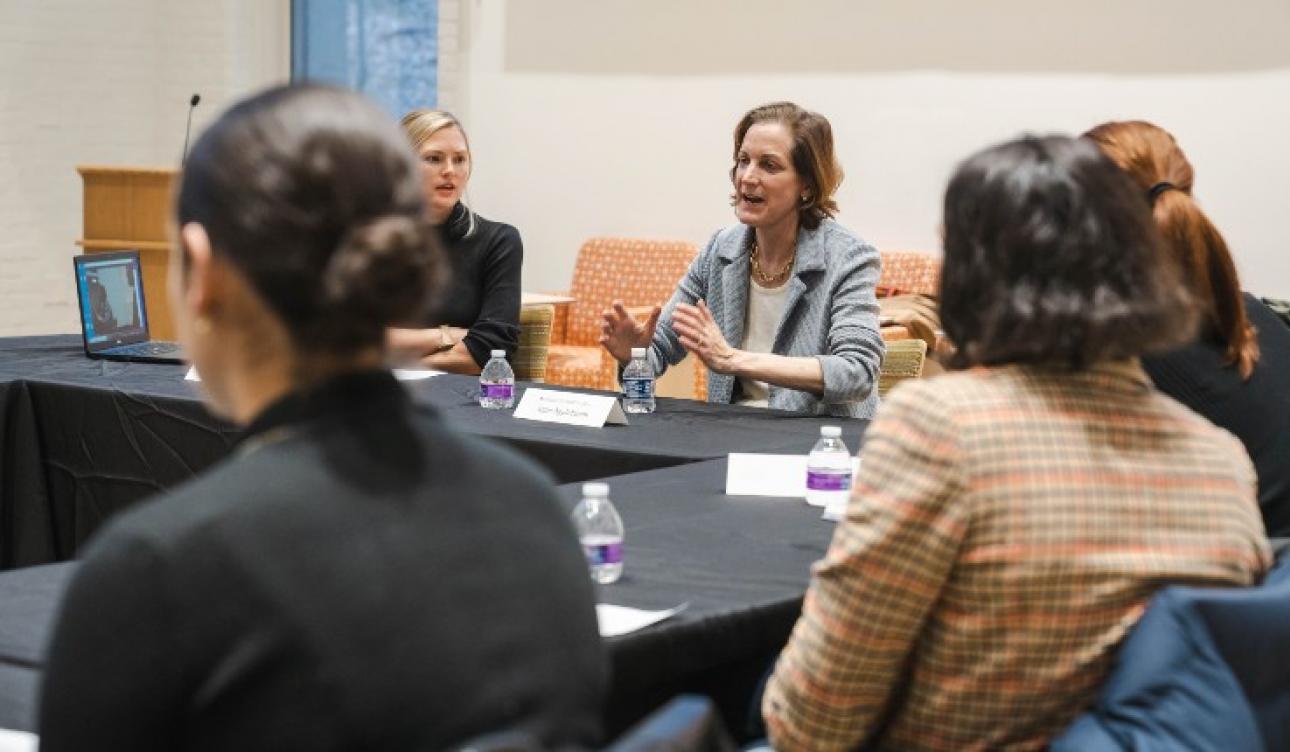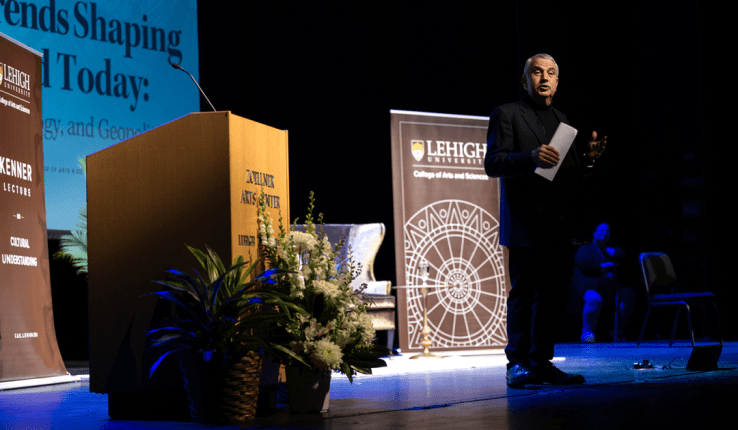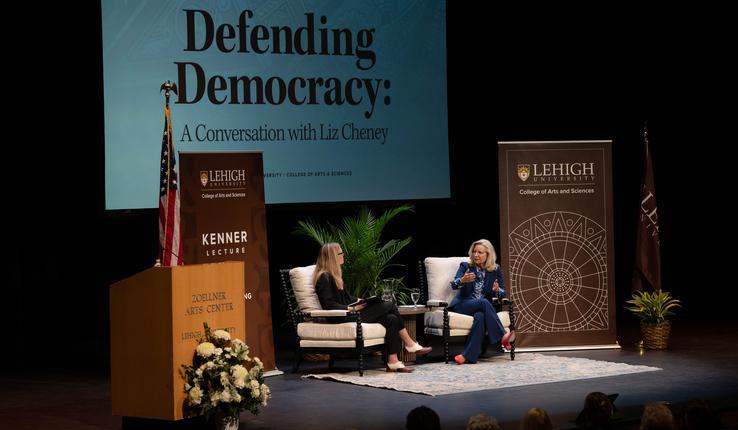After visiting the New World in the early 1800s, French political theorist Alexis de Tocqueville observed that Americans had an aptitude for practicing democracy on a small scale, coming together to build a local school or hospital or create civic groups.
It's that talent for institution-building that has waned in the Internet Age but is key to reversing the erosion of democracy, according to Anne Applebaum, a Pulitzer Prize-winning historian and staff writer for The Atlantic. On Tuesday, Applebaum delivered the Kenner Lecture titled "Disinformation and the Threat to Democratic Institutions" at Lehigh's Baker Hall. It’s a subject she explores in her book “Twilight of Democracy: The Seductive Lure of Authoritarianism."
“In fact, thanks to the wholesale transfer of entertainment, social interaction, education, commerce and politics from the real world to the virtual world…many Americans actually now live in a kind of inversion of the Tocquevillian dream," Applebaum told the large audience. "So instead of participating in civic organizations that give them practical experience in consensus building, they join internet mobs or groups in which they are submerged in the logic of the crowd, and they click ‘like’ or ‘share’ and then they move on. So instead of entering a real-life public square, they drift, often anonymously, into digital spaces where they rarely meet anyone who disagrees with them, and when they do, their instinct is often to vilify them.”
What rules there are on large internet platforms like Facebook are decided by a small number of people, who make money by selling users' data to advertisers and others, she said.
"If de Tocqueville were to visit cyberspace, it would be as if he had arrived in pre-1776 America and found people who essentially didn't control the rules of their society," she said.
Americans are paying a high price for the country's failure to create a rules-based internet, Applebaum said. It's hard for the nation to make collective decisions when people can't even agree on the facts.






